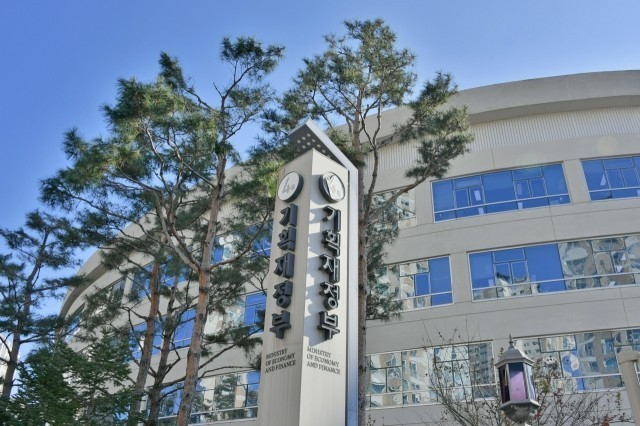S. Korea's 2023 tax revenue estimate revised down to 341.4 tr won
By YonhapPublished : Sept. 18, 2023 - 11:18

South Korea's finance ministry said Monday it has revised down its annual tax revenue estimate to 341.4 trillion won ($256.7 billion), mainly due to weak corporate earnings and a slump in the property market.
The latest revision is down 59.1 trillion won from its previous outlook of 400.5 trillion won, according to the Ministry of Economy and Finance.
To tackle the decline in tax revenue, the government also unveiled plans to utilize surplus resources, including those from the foreign exchange equalization fund.
"The decrease in the tax revenue is attributable to the sharp deterioration of economic conditions at home and abroad from the fourth quarter of 2022 through the first half of this year," the ministry said in a release.
The ministry pointed out that the global economic slowdown and a slump in the semiconductor industry led to sluggish exports, which eventually hurt corporate earnings.
The government also attributed the decrease to the lower amount of capital gain tax collected amid the falling number of traded homes. The number of homes traded reached 323,000 over the January-July period, down 7.7 percent from a year earlier.
The amount of income tax projected for this year was estimated at 114.2 trillion won, down from the previous estimate of 131.9 trillion won.
That of corporate tax was estimated at 79.6 trillion won, down from the previous 105 trillion won, the government added.
South Korea, meanwhile, noted that the reevaluation is expected to have only a limited impact on the livelihood of the people as well as the macroeconomy, as the country plans to utilize all available resources, including surplus funds from the foreign exchange equalization fund, to maintain its welfare and economic revitalization policies.
The country also noted it has no plan to seek an extra budget as it aims to cope with shortages in tax revenue with the available resources.
The government emphasized that its tax code revision, unveiled in July with a primary focus on providing tax cuts for businesses, was not the cause of the adjustment. It also asserted that these measures were essential for injecting vitality into the economy. (Yonhap)





![[KH Explains] No more 'Michael' at Kakao Games](http://res.heraldm.com/phpwas/restmb_idxmake.php?idx=644&simg=/content/image/2024/04/28/20240428050183_0.jpg&u=20240428180321)














